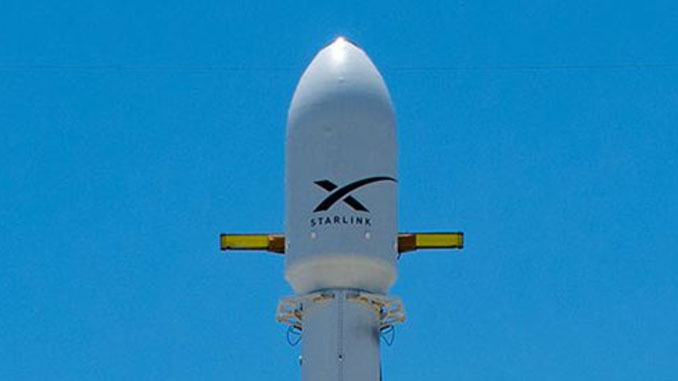
Get ready for an electrifying weekend as SpaceX sets its sights on launching yet another group of Starlink satellites from Cape Canaveral Space Force Station late Saturday night. The Falcon 9 liftoff is scheduled for 11:00 p.m. EST (0400 UTC).
If the company can tackle any weather-related challenges, the Starlink 6-31 mission, expected to launch less than 40 hours after its predecessor, will become a reality. U.S. Space Force meteorologists are predicting a 45-percent chance of favorable conditions for liftoff. The main concerns include the potential of lightning from thick cloud layers and cumulus clouds, with a moderate risk of upper-level wind shear as well.
SpaceX delayed the launch from Friday night to address undisclosed issues. As of Saturday morning, the Falcon 9 had not appeared at the launch pad.
Spaceflight Now’s live coverage will begin an hour before liftoff at 10 p.m. EST (0000 UTC), unless there is a launch delay.
The first-stage booster, tail number B1078, embarks on its sixth flight after taking flight on the Crew-6 mission to the International Space Station on March 2, 2023. It also previously launched the O3b mPOWER 3 and 4 satellites as well as three Starlink missions.
Approximately eight-and-a-half minutes post-liftoff, it will land on the droneship “A Shortfall of Gravitas” in the Atlantic Ocean. According to SpaceX, this will mark the 251st landing of an orbital class rocket, with the distinction of the 250th landing going to the Korea 425 mission’s landing at Vandenberg Space Force Base’s Landing Zone 4 on Friday.
The recovery vessel named “Doug” will retrieve the payload fairing halves after they splash down.
Approximately one hour and five minutes into flight, the second stage of the Falcon 9 will deploy the 23 satellites for SpaceX’s Starlink network.
Not only is the launch from pad 40 on SpaceX’s Space Coast schedule this weekend, but crews were also mobilized Saturday morning to roll out a Falcon Heavy rocket from the hangar at Launch Complex 39A to the pad.

This operation sets the stage for a static fire test on Sunday in anticipation of the USSF-52 mission launch, scheduled for Dec. 10. This mission will mark the first time the Falcon Heavy has been used to launch the U.S. military’s X-37B spaceplane. A launch window for the USSF-52 mission has not been publicly announced.

